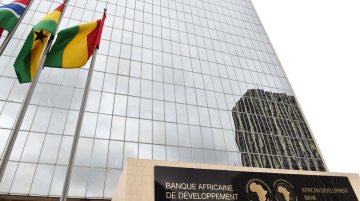
By Tim Hirschel-Burns
Many people in the development finance community migrated up the United States’ eastern seaboard over the weekend. Last week, the International Monetary Fund (IMF) and World Bank Group Spring Meetings took place in Washington D.C., while this week the United Nations (UN) Economic and Social Council (ECOSOC) is holding its Financing for Development Forum in New York City.
Despite the differing venues, both events take place with a common background: a devastating shortfall in development finance. According to the United Nations Conference on Trade and Development, there is a $4 trillion annual investment gap holding back the achievement of the UN 2030 Sustainable Development Goals (SDGs). With just six years remaining until the 2030 deadline, and with a stepwise increase in finance also needed to meet climate goals, all countries must offer their strengths to the cause.
This backdrop provides an opportunity for China to demonstrate its leadership in development finance, and the UN Financing for Development process may be a promising venue for China to do so.
This Financing for Development Forum comes at a timely moment. The forum is a regular, mandated follow-up meeting to review progress from the Third Financing for Development Conference. That conference took place in 2015, and this week’s Financing for Development Forum is the last until the Fourth Financing for Development Conference in 2025, the first such conference in a decade. Also, this September, the United Nations is hosting the Summit of the Future, a one-off summit meant to provide an exceptional moment to reinvigorate multilateralism. While preparations for that conference are technically on a different track from the Financing for Development Forum and Conference, the two UN processes are sure to influence each other.
China has important capacities that could strengthen its next phase of development finance. It has experienced development and export finance institutions, and it has deep domestic knowledge of industrial development that is highly relevant to countries looking to embark on structural transformations of their own.
While it is true that these UN processes can lack the teeth that come with IMF and World Bank decision-making—no decision at this week’s Financing for Development Forum will automatically trigger changes in financial flows—it would be a mistake to write them off. The Addis Ababa Action Agenda that came out of the last Financing for Development Conference has played an important role in shaping national and multilateral development policies. Collective pronouncements from UN member states carry legitimacy and normative weight that influences institutions, even when they are not formally bound to comply.
These UN processes come with another key difference from the World Bank and IMF: their governance is far less weighted towards Global North countries. For example, Group of 7 (G7) countries command 43% of the quotas that determine IMF governance, while China holds just 6.4% of quotas, despite generating 16.7% of global gross domestic product (when adjusting for purchasing power). And China has been frustrated with the Bretton Woods Institutions’ resistance to evolving their governance—a much awaited review of the IMF’s quotas ended last year without any redistribution.
China can bolster its case for a greater say in global governance by showing diplomatic leadership in UN processes and—crucially, given how many countries have failed this test—following through on providing the high-quality and high-volume development finance that is needed to achieve the SDGs. China’s Belt and Road Initiative provided a huge influx of development finance to developing countries, but lending has slowed down since 2016. China’s energy finance has also often focused on fossil fuels.
However, China has important capacities that could strengthen its next phase of development finance. It has experienced development and export finance institutions, and it has deep domestic knowledge of industrial development that is highly relevant to countries looking to embark on structural transformations of their own. Developing countries would also be eager to learn from China’s mass production of clean energy. Combining China’s know-how with its financial capacity could provide important support to developing countries, and ensuring that this development finance is green and encourages countries to move up the value chain would counteract criticisms of China’s climate record and relationships with developing countries.
China also has a key role to play in advancing the broader Financing for Development agenda. Domestic resource mobilization is central to financing the SDGs but is undermined by tax avoidance. Unlike the vast majority of Northern governments, China supported the successful recent resolution to advance tax cooperation at the UN. Further, debt constitutes an immense barrier to achieving the SDGs and Paris Agreement goals. All creditor classes, including China, need to do more to support quick debt restructurings, including taking haircuts that equitably share burdens across creditors. And when Chinese companies operate overseas, the Chinese government should ensure that they respect human rights standards and tax laws.
Too often, countries turn to empty promises and mudslinging rather than providing the high-quality development finance that is desperately needed. With development finance flows falling so short of what is needed and the timeline for meeting global goals so tight, every country and diplomatic process must deliver on its comparative advantages. Global North governments and the Bretton Woods Institutions are essential development finance actors, but they are not the only game in town. The Financing for Development process can catalyze ambitious action, and China can show that it is a leader in providing the development finance on which so many global goals depend.
Tim Hirschel-Burns is the Policy Liaison for the Global Economic Governance Initiative at the Boston University Global Development Policy Center. Follow him on X: @TimH_B.









